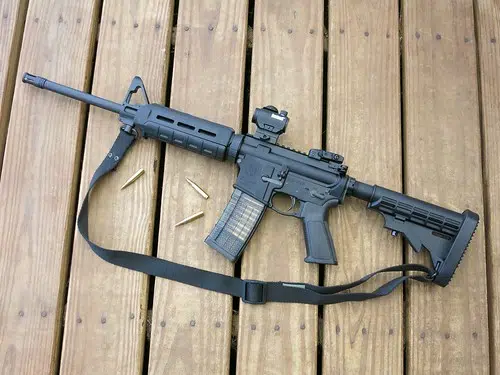Gun lobbyists are calling the federal governments new restrictions on firearms “unconstitutional.”
new restrictions put in place by the federal government identified 1,500 makes and models of firearms that are now restricted, which were referred to as “assault-style” firearms during Prime Minister Justin Trudeau’s announcement.
Groups like the National Firearms Association disagree with that classification, noting assault rifles – or fully-automatic firearms – have been banned in Canada since 1977.
Blair Hagen, executive vice-president of the National Firearms Association, says he disagrees with the government’s stance on the decision, saying it isn’t designed to make people safer but rather it targets gun owners.
“The government has no idea of the implications of what they’ve done,” he said.
“They’ve targeted over 100,000 firearms most of which were hunting or target rifles.”
Hagen says another concern for gun owners is the way in which the new regulations were implemented, which was done via an order-in-council, meaning it was not voted on or discussed in Parliament.
“The fact they weren’t willing to discuss this in Parliament just shows it has no grounding in reality, it’s all political,” he says.
Conservative leader Andrew Sheer shared the same feelings on the process, saying the prime minister used the tragedy of the Nova Scotia mass shooting as an opportunity to make drastic changes without pushback.
Scheer also noted the shooter in the incident did not have a firearms license and procured all his weapons illegally. He said the ban will only mean more rules for law-abiding Canadians and do little to reduce illegal guns.
RCMP have confirmed many of the Nova Scotia shooter’s weapons were purchased in the United States and brought across the border illegally.
However, the prime minister backed up his decision at a recent media briefing, saying too many families have been affected after shooting incidents involving AR-styled rifles, including in Sainte-Foy, Que., and at l’Ecole Polytechnique 30 years ago.
The new regulations are already in effect but anyone in possession of the guns listed has a two-year amnesty period to deal with them.
Public Safety Minister Bill Blair said at the end of the two-year amnesty, gun owners must dispose of the firearm or they may be able to apply for the firearm to be “grandfathered.”
The government is also looking into a buyback program that would see them purchase the firearms directly from the current owners.
Hagen says neither of those options is appealing to gun owners.
“I can tell you, we will accept neither compensation or grandfathering,” he said.
“These are the rights and property of Canadians that they own lawfully.”




